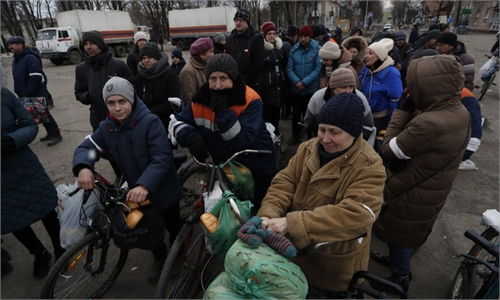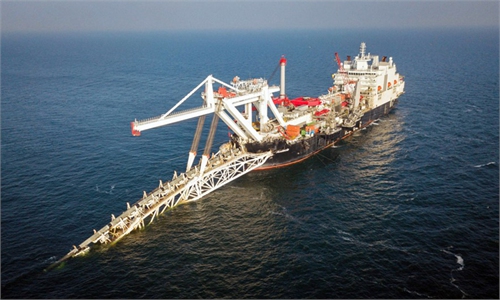
Photo taken on May 24, 2022 shows the entry point of the Druzhba pipeline between Hungary and Russia at the Danube Refinery in Szazhalombatta, Hungary.Photo:Xinhua
Russia has promised to continue gas shipments to Hungary and that Gazprom will fulfil its contractual obligations to the country, Hungarian Foreign Minister Peter Szijjarto said in an interview on public service radio on Sunday.In Russia's response to Western sanctions imposed on Moscow since the start of its militray operation in Ukraine, state energy giant Gazprom has cut supplies to Denmark's Orsted and to Shell Energy for its contract to supply gas to Germany.
It also cut supplies to Dutch gas trader GasTerra along with Bulgaria, Poland and Finland for refusing to make payments for Russian gas in rubles under a new ruble scheme.
Szijjarto said that Gazprom CEO Alexey Miller and Russia's deputy prime minister Alexander Novak had both assured him in a phone call that the company would fulfil its obligations toward Hungary set out in its contract, Szijjarto said.
The minister did not say when the phone call took place. The foreign ministry did not immediately reply to a request for comment.
Under a deal with Gazprom signed last year, Hungary receives 3.5 billion cubic meters (bcm) of gas per year via Bulgaria and Serbia under its long-term deal with Russia, and a further 1 bcm via a pipeline from Austria.
The agreement is valid for 15 years, with an option to modify purchased quantities after 10 years.
Szijjarto also said on Sunday that Hungary's energy security, including its gas supply, is stable and that gas shipments have been arriving daily as per the contract, on schedule, and without any disruptions.
Russian gas flows to Europe fell short of demand on Friday as Italy and Slovakia reported receiving less than half of the usual volumes through the Nordstream 1 pipeline, which crosses the Baltic Sea from Russia to Germany and accounts for around 40 percent of Russian pipeline flows to the European Union (EU).
On Sunday Germany announced further steps to boost gas storage levels to prepare for the next winter season, when it fears Russia could reduce or even completely halt supplies.
Reuters



